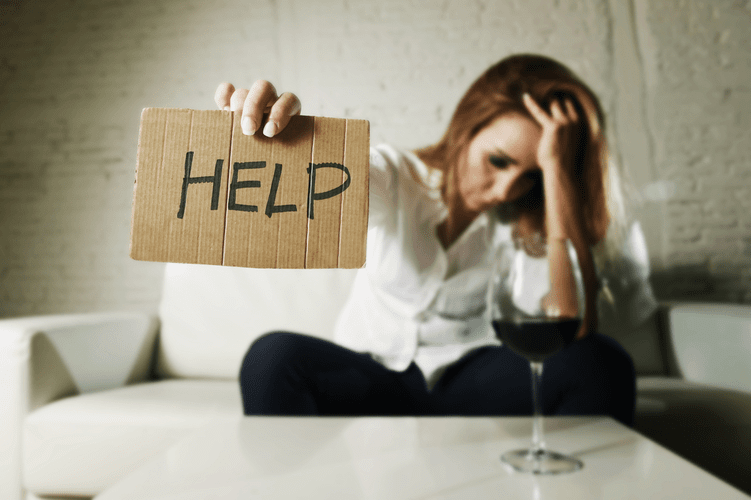They may know something about the person’s deepest aspirations and voice them as a reminder that can help the person remain on the road to recovery. And they can help plan healthy joint activities to ensure that there are good days. Caring for addiction requires science-backed medical interventions coupled with personalized support that addresses a range of social drivers of health. This sort of holistic, integrated approach is standard for people receiving treatment for cancer, HIV, and other chronic conditions.

More Must-Reads from TIME
Official websites use .govA .gov website belongs to an official government organization in the United States. Burnout in healthcare professionals, especially those with http://simonstonehall.com/wordpress/giftcards/ adverse childhood eperiences, causes exhaustion and reduced effectiveness. When their provider retires or moves, they may not find anyone willing to take over.
Poilievre says government should pay organizations that succeed in getting people off drugs
- If a person uses as much of the drug as they did before quitting, they can easily overdose because their bodies are no longer adapted to their previous level of drug exposure.
- For many recovering addicts, these emotions can become overwhelming and lead to a desire to use drugs as a coping mechanism.
- Less visible are the people who survive the illness and rebuild their lives.
- Guilt refers to feels of responsibility or remorse for actions that negatively affect others; shame relates to deeply painful feelings of self-unworthiness, reflecting the belief that one is inherently flawed in some way.
Overcoming an SUD is not as simple as resisting the temptation to take drugs. It’s up to each individual to decide when to begin “working the steps,” and when to approach a sponsor. Your sponsor is meant to provide guidance, support, and understanding during the steps process.
After the healing, a better life
Because recovery involves growth, families need to learn and practice new patterns of interaction. Addiction doesn’t just affect individuals; addiction is a family affliction. The uncertainty of a person’s behavior tests family bonds, creates considerable shame, and give rise to great amounts of anxiety. Because families are interactive systems, http://dvdvideomarket.ru/shop/i213.dorogi_indii_-_caminho_das_indias_soundtrack_4_cd_.htm everyone is affected, usually in ways they are not even aware of. When a person goes into treatment, it isn’t just a case of fixing the problem person. The change destabilizes the adaptation the family has made—and while the person in recovery is learning to do things differently, so must the rest of the family learn to do things differently.
- American Addiction Centers (AAC) is committed to delivering original, truthful, accurate, unbiased, and medically current information.
- Stressful life events, such as losing a job, relationship issues, or financial problems, can trigger a relapse.
- People in methadone treatment, who must regularly visit an opioid treatment program (OTP), face stigma from their community and from providers.
- Staying engaged with therapy and support groups and being open to changes in the treatment approach can help maintain long-term sobriety.
- Recovery from addiction is not a linear process, and increasingly, relapse is seen as an opportunity for learning.
- Surround yourself with people who support your sobriety, not those who tempt you to slip back into old, destructive habits.
Impact of Professional Treatment on Relapse Rates

It’s maintaining change that’s hard—creating new and sustained ways of thinking and behaving. As Mark Twain quipped, “Quitting [smoking] is easy, I’ve done it dozens of times.” Many can begin a positive health behavior change, but most will run out of gas before they’re around the first bend. For diagnosis of a substance use disorder, most mental health professionals use criteria in the Diagnostic and Statistical Manual of Mental Disorders (DSM-5), published by the American Psychiatric Association. 50.2 million American adults considered themselves to be in recovery from their substance use and/or mental health problems.

- They are a good option if you don’t have a stable home or a drug-free living environment.
- Drug and alcohol detoxification programs prepare a person for treatment in a safe, controlled environment where withdrawal symptoms (and any physical or mental health complications) can be managed.
- Once you’re sober, the negative feelings that you dampened with drugs will resurface.
- These factors, known collectively as “recovery capital,” enhance an individual’s ability to function in his or her surroundings, reduce the risk of problematic substance use, and maximize quality of life.
- Many organizations, however, are small and not as familiar with how to collect and analyze data.
At least equally necessary is developing in a positive direction out of the addiction. The key is cultivating new goals and taking measures to move towards them. The motivational force http://popugay.crimea.ua/forum/bolezni-popugaev-f33/temno-zeleniy-pomet-silnaya-vyalost-droj-poterya-appetita-volnistogo-popugaya-t8492.html?sid=e45584a135f8e0f6d625742796bb5423 of new goals eventually helps rewire the brain so that it has alternatives to the drive for drugs. It’s hard to leave addiction behind without constructing a desirable future.
Does relapse to drug use mean treatment has failed?
Like treatment for other chronic diseases such as heart disease or asthma, addiction treatment is not a cure, but a way of managing the condition. Treatment enables people to counteract addiction’s disruptive effects on their brain and behavior and regain control of their lives. At every step of the way, support from friends, peers, and family is useful, but there are also many services and organizations that provide guidance., and many can be accessed through Recovery Community centers. The best way to handle a relapse is to take quick action to seek help, whether it’s intensifying support from family, friends, and peers or entering a treatment program. One advantage of mutual support groups is that there is likely someone to call on in such an emergency who has experienced a relapse and knows exactly how to help.
- By contrast, most adolescents relapsed in social settings when they were trying to enhance a positive emotional state.
- BetterHelp is an online therapy service that matches you to licensed, accredited therapists who can help with depression, anxiety, relationships, and more.
- Detoxification is not equivalent to treatment and should not be solely relied upon for recovery.
- Triggers can be any person, place, or thing that sparks the craving for using.
- • Meaning and purpose—finding and developing a new sense of purpose, which can come from many sources.
The inhibitor plays a significant role in addiction by rewarding substance use and reinforcing addictive behaviors. The American Psychiatric Association does not officially recognize the condition. Still, it is acknowledged as a behavioral addiction by many medical professionals and researchers worldwide. According to several studies, over time, the devoted use of smartphones can alter and negatively impact an individual much like gambling.
